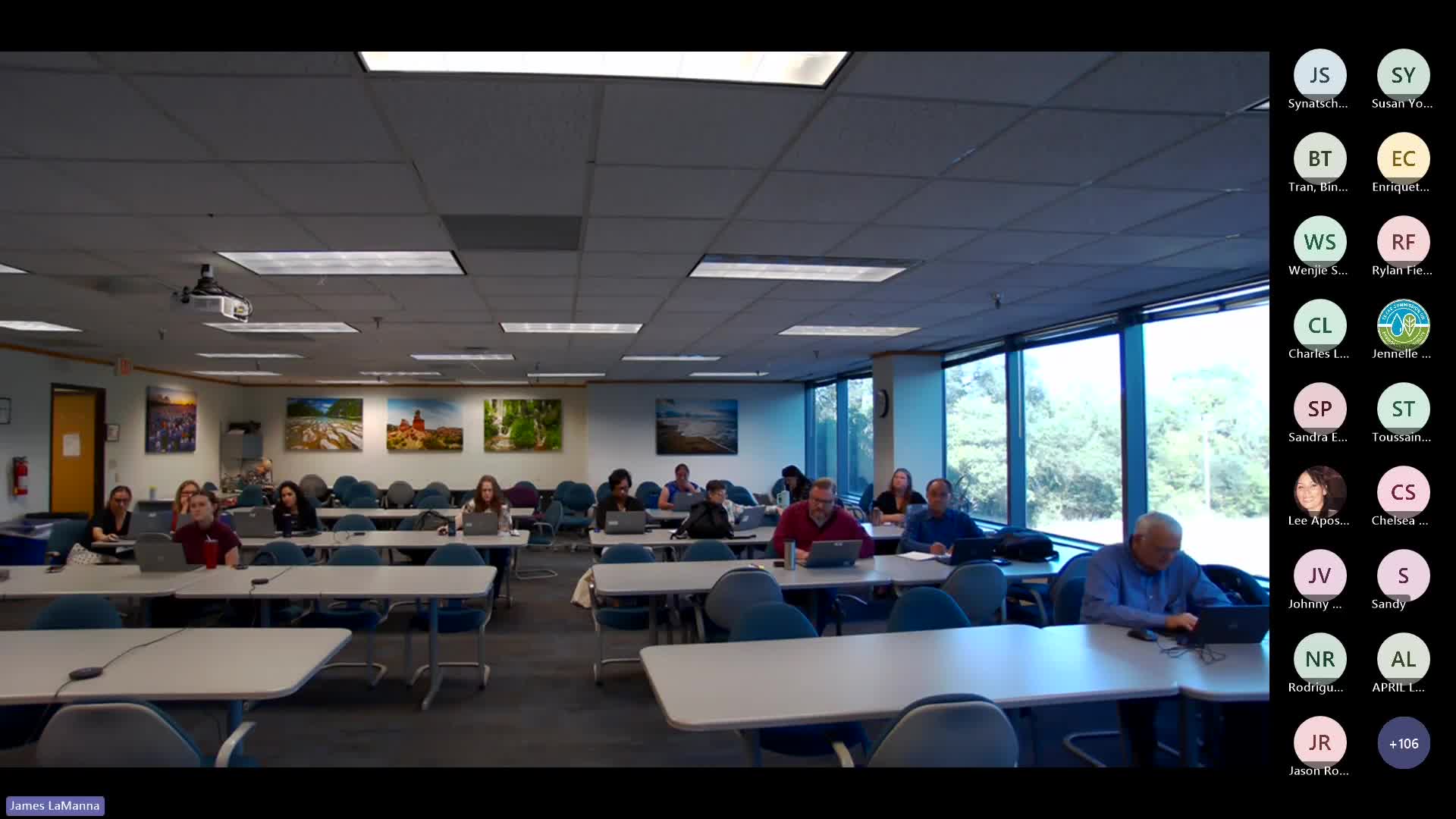TCEQ readies SWIFT portal, urges systems to prepare for LCRI baseline inventory due Nov. 1, 2027
Get AI-powered insights, summaries, and transcripts
Subscribe
Summary
Texas Commission on Environmental Quality staff told the Drinking Water Advisory Work Group on Oct. 14 that they will update the SWIFT lead-service-line inventory portal and urged public water systems to prepare for the Lead and Copper Rule Improvements baseline inventory due Nov. 1, 2027.
Texas Commission on Environmental Quality staff told the Drinking Water Advisory Work Group on Oct. 14 that they will update the SWIFT lead-service-line inventory (LSLI) portal and urged public water systems to begin preparing for the Lead and Copper Rule Improvements (LCRI) baseline inventory, which is due Nov. 1, 2027.
The agency plans several user-facing changes to make the portal easier to use and more accurate, Laura Higgins, section manager for Drinking Water Standards, said. Proposed updates include improved homepage and registration behavior (fixes for special-character handling), enhanced mapping, an explicit “no customer-side” option, required connector fields, automatic tiering calculations, and fields to document validation methods when systems use non‑visual techniques (for example, predictive models or metal detectors).
Why it matters: the baseline inventory is central to LCRI compliance and to determining monitoring and replacement priorities. Higgins said the portal will require connector information grouped into four categories that LCRI now requires: lead connector, non‑lead connector, unknown, or no connector present. She said the portal will also include logic to calculate the new tiering criteria so systems need not manually assign tiers.
TCEQ does not require systems to submit an updated inventory this year, Higgins said, but systems that voluntarily provide an updated inventory can reduce the number of customer notices they must deliver later. She repeated that systems that submitted initial inventories on Oct. 16, 2024, must continue to file annual customer‑notice certifications (the “certificate of delivery,” often referred to as 4H) by July 1 each year.
Systems raised migration questions during the meeting: several operators said importing large inventories can create duplicates, and that the portal’s current behavior can duplicate lines instead of updating or archiving obsolete connections. TCEQ staff acknowledged those concerns and said they will work with their contractor to improve import, deduplication, and archival workflows.
Higgins said TCEQ is aiming to provide an updated baseline-template portal release in the winter of 2025/early 2026 but cautioned that each requested change can add development time. She advised systems to register for SWIFT, learn the portal now, and use the intervening years to migrate and validate records so they are not learning the tool in the last weeks before the 2027 due date.
Evidence in the record: Higgins introduced the portal changes during the LCRI presentation and reiterated deadlines and certificate requirements; attendees asked detailed questions about connector categories, duplicate detection, and the ability to designate wholesaler-only systems.
